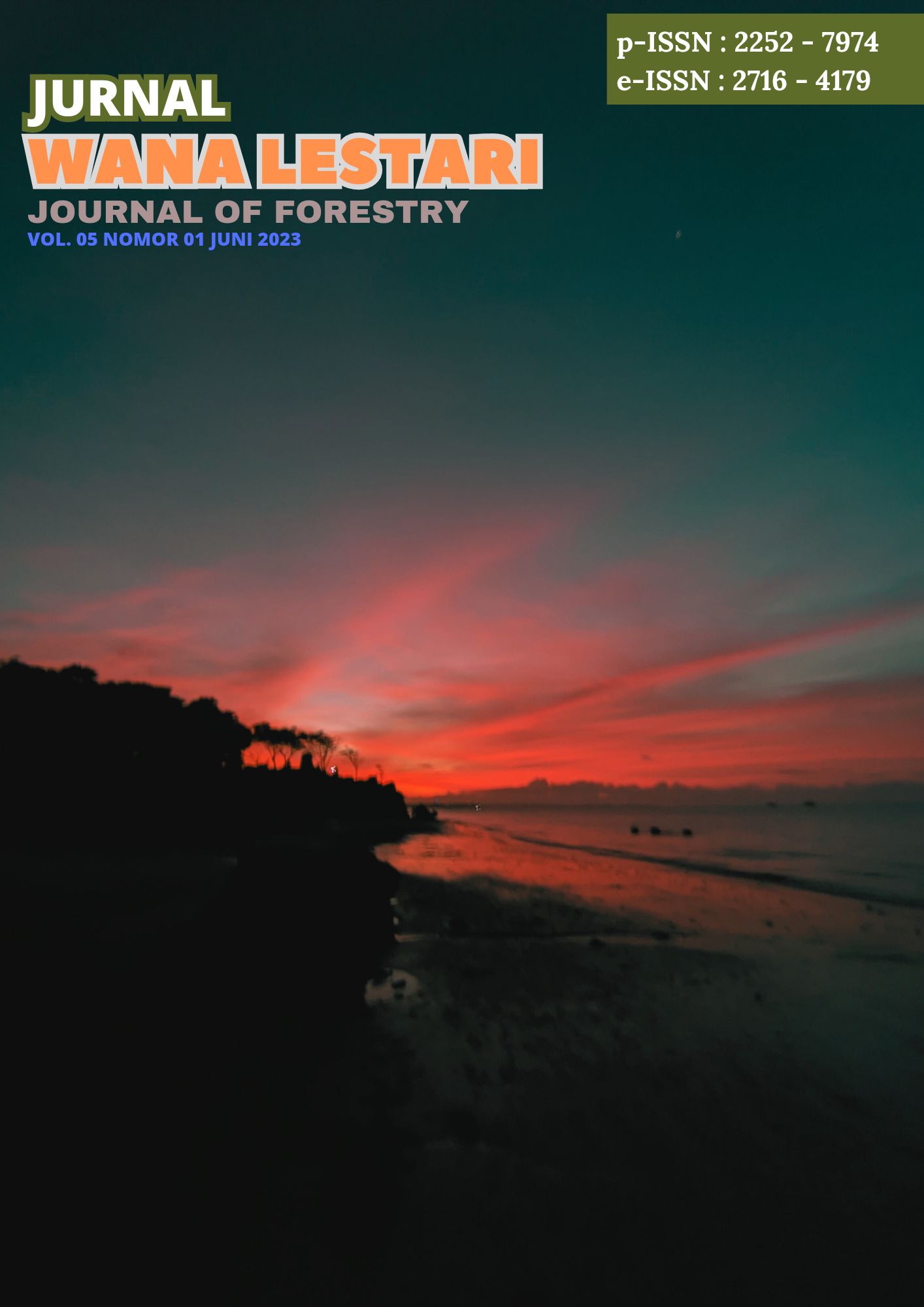INSTITUTIONAL ANALYSIS OF FOREST FARMER GROUP (KTH) IN THE WOLOBOBO COMMUNITY FOREST AREA (Case Study of Rakateda II Village, West Golewa District, Ngada District, Flores, East Nusa Tenggara)
Abstract
The WoloboboHKm area has experienced encroachment damage which was still found up to 2001 with a total land area of 481 hectares and fires that occurred in the last five years covering 117 hectares. To avoid increasing damage, it is necessary to emphasize the people who have an important role, one of the strategies used is the Social Forestry scheme in the form of community forestry (HKm), which involves the community directly as part of the forest ecosystem unit which is seen as one of the stakeholders who will determined to seek sustainable development of forest ecosystems and improve community welfare through the Forest Farmers Group (KTH) institution. The research was carried out in the WoloboboHKm area, Bajawa, Ngada Regency. This research was conducted to analyze the KTH Institutions in the Wolobobo Community Forest Area. The research was conducted for 2 months July - August 2022. Respondents in this study came from 3 KTH with a total of 39 members. The method used in this study is a qualitative method, using Stakeholder analysis with the 4R framework, namely Rights (Rights), Responsibility (Responsibility), Income/return (Results/benefits), Relationships (Relationships). The results of the research obtained through the interview method with the help of a questionnaire note that the Institutional Forest Farmer Group has not been effective due to reduced community development and assistance, reduced awareness of responsibility by each stakeholder role, low community income and relationships between stakeholders that have not worked well.

 Irene Ascicin(1*)
Irene Ascicin(1*)







